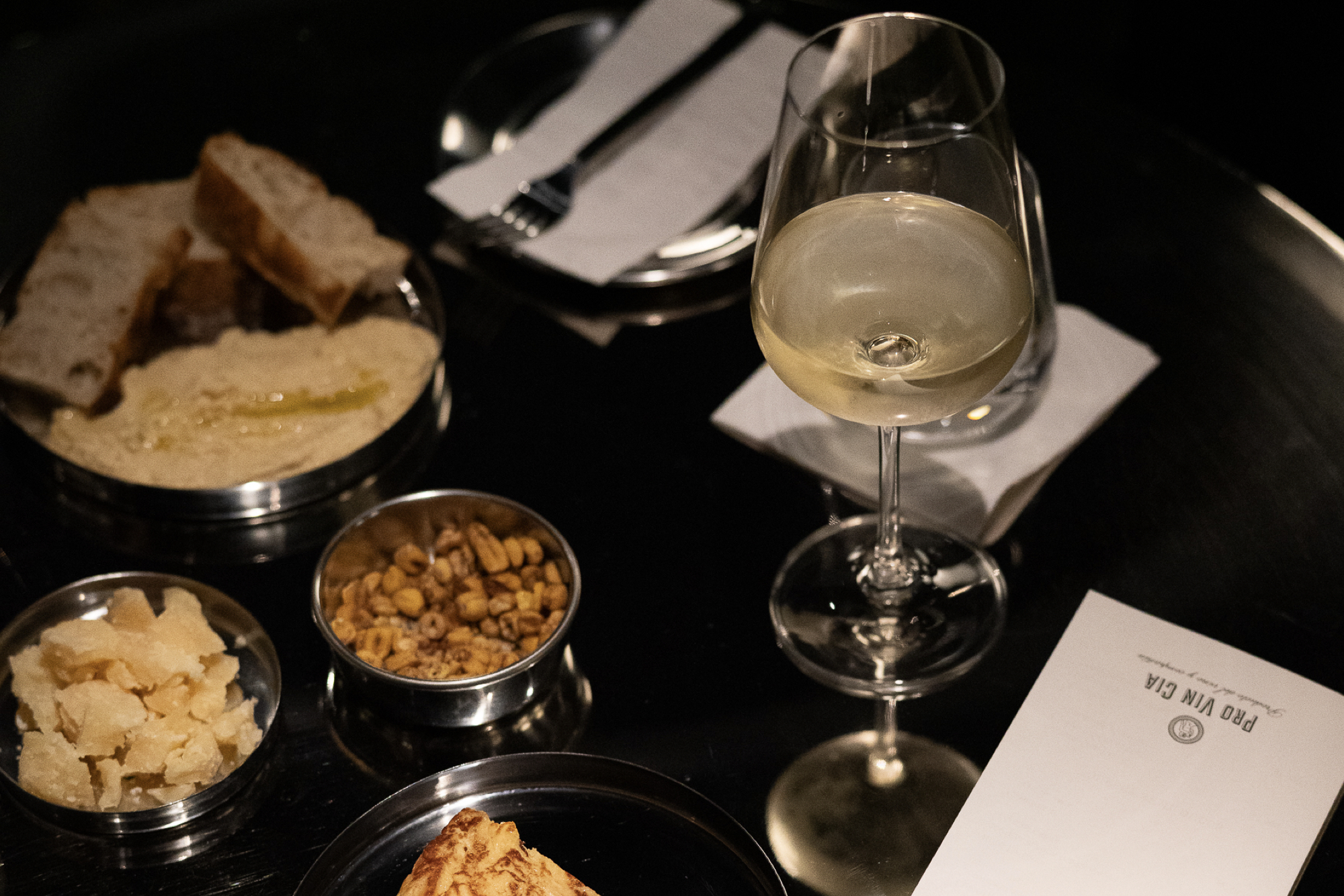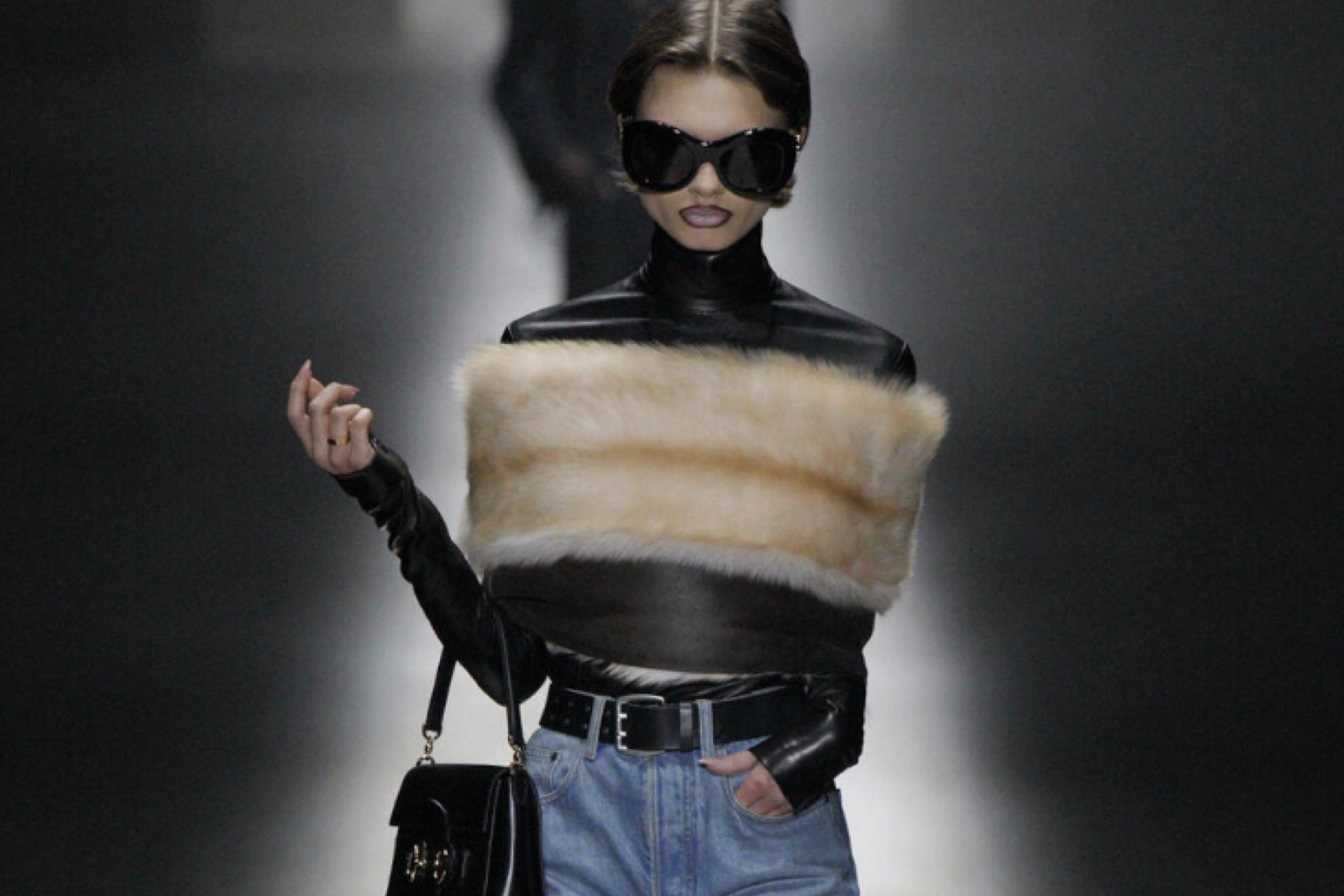Lazoschmidl’s Spring/Summer 2026 collection is an emotional autobiography that reflects on the experience of traveling for both business and pleasure—inhabiting the tension between intimacy and exposure, between what is revealed and what is kept. SS26 proposes a wardrobe that dissolves binaries with a naïve and deliberately fresh queer sensibility.
“Workwear by 9, fantasy by 9:30. Some clothes tell the truth. Others tell the story you want to live.”
With that premise, Josef Lazo and Andreas Schmidl present minimalist silhouettes rooted in their personal trajectories—from Lazo’s Nu Rave years in London to Schmidl’s academic thesis on Japanese pop literature in Frankfurt. Archive imagery once featured in their fanzine Unpublished Material resurfaces as DIY iron-ons and digitally printed mesh. The palette moves between corporate neutrals and soft, washed-out hues—blues and pinks that evoke California skies at dusk—contrasted with hand-bleached yellow denim.


Breaking away from traditional runway formats, Rendezvous unfolds as a live ritual of transformation. Over the course of two and a half hours, ten male models mutate in real time, moving through sculptural, semi-transparent booths—dressing and undressing under the public gaze. There is no backstage. Everything is part of the scene. Set in a Parisian courtyard, the installation plays with the blurred lines between privacy and exposure in an era where what is seen and what is shown are no longer distinct.
Rendezvous explores the performativity of identity as a fluid gesture—a narrative with no edits or filters. In a culture governed by infinite scrolling and relentless self-editing, Lazoschmidl proposes slowing down and seeing without mediation. This fluid mirror between viewer and subject reflects contemporary tensions around mental health, body image, and the aestheticization of the private.
This friction becomes creative material. The model shows what he chooses to show; the spectator interprets what they want to see. As the designers explain, the inspiration stems from the rituals of getting ready for a first date—a moment of anticipation, insecurity, and layered identity rehearsed in front of a mirror. They sought to turn that everyday performance into a visible, aesthetic experience.


Among their creative influences are Haruki Murakami, for his dreamlike atmospheres and emotional distance; Wolfgang Tillmans, for his reflections on queer youth and the eroticism of the everyday; and Miley Cyrus, whom they celebrate for transforming vulnerability into a form of power.
“Taste the forbidden fruit. — Because desire is where everything starts. Fashion, like love, should tempt you into unknown territory — make you feel something you’re not supposed to. That’s where truth lives.”

La colección Spring/Summer 2026 de Lazoschmidl es una autobiografía emocional que refleja la experiencia de viajar por negocios y placer, habitando la tensión entre lo íntimo y lo expuesto, lo que mostramos frente a lo que decidimos resguardar. Esta colección propone un guardarropa que disuelve binarismos con un encanto queer ingenuo y deliberadamente fresco.
“Ropa de trabajo a las 9, fantasía a las 9:30. Algunas prendas cuentan la verdad, otras la historia que quieres vivir.”
Con esa premisa, Josef Lazo y Andreas Schmidl presentan siluetas minimalistas que dialogan con sus trayectorias personales, desde los años Nu Rave de Lazo en Londres hasta la tesis de Schmidl sobre literatura pop japonesa en Frankfurt. Imágenes de archivo que alguna vez habitaron su fanzine Unpublished Material resurgen como parches hechos a mano o estampados digitales sobre malla. La paleta oscila entre neutros corporativos y tonos suaves —azules y rosas deslavados que evocan los cielos californianos al atardecer—, en contraste con un amarillo denim blanqueado a mano.

La presentación rompe con el formato tradicional. Rendezvous es un ritual de transformación en vivo. Durante dos horas y media, diez modelos masculinos mutan en tiempo real, cruzando cabinas escultóricas semitransparentes, vistiéndose y desvistiéndose bajo la mirada del público. No hay backstage. Todo es parte de la escena. El montaje, instalado en un patio parisino, juega con los límites entre privacidad y exposición en una era donde la línea entre lo visible y lo mostrado se ha vuelto difusa.
Rendezvous explora la performatividad de la identidad como un gesto mutable, una narrativa sin cortes ni filtros. En una cultura regida por el scroll infinito y la autoedición, Lazoschmidl propone detenerse y mirar sin intermediarios. Ese espejo fluido entre quien mira y quien es mirado también refleja tensiones contemporáneas: salud mental, imagen corporal, la estetización de lo privado.
Esa fricción se convierte en material creativo. El modelo muestra lo que quiere mostrar; el espectador interpreta lo que quiere ver. Según explican los diseñadores, la inspiración nace en los rituales de preparación para una primera cita. Ese momento de expectativa, de inseguridad, de capas de identidad que se prueban frente al espejo. Quisieron convertir ese gesto diario en una experiencia estética visible.


Entre sus influencias destacan Haruki Murakami, por sus atmósferas oníricas y la distancia emocional; Wolfgang Tillmans, por su mirada sobre la juventud queer y la belleza cotidiana; y Miley Cyrus, a quien celebran por convertir la vulnerabilidad en una forma de poder.
“Prueba el fruto prohibido. Porque el deseo es el punto de partida. La moda, como el amor, debe tentar a lo desconocido, hacerte sentir lo que no deberías. Allí reside la verdad.”
Photo @apomesphoto
Make-up @sebas.catalan powered by @moussse
Location Ministère de la Culture @culture_gouv
Thank you FHCM @serge.carreira
PR Florian Cros @pr.you.consulting
https://www.instagram.com/lazoschmidl/





